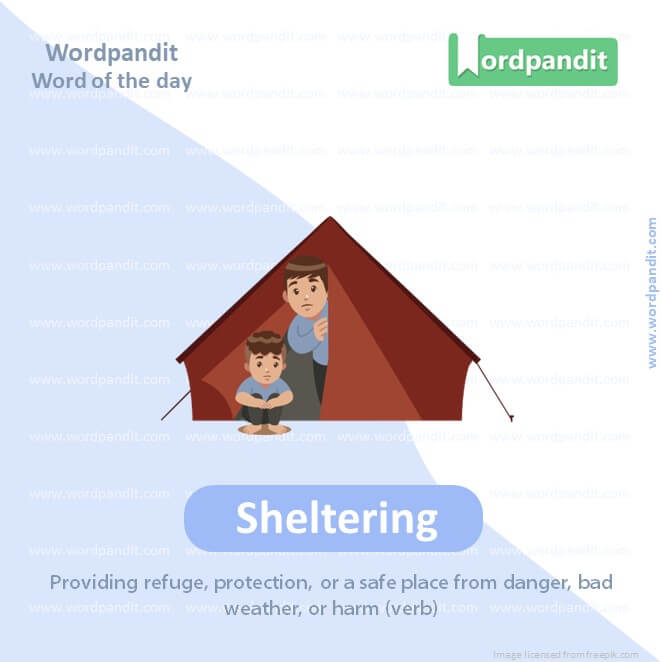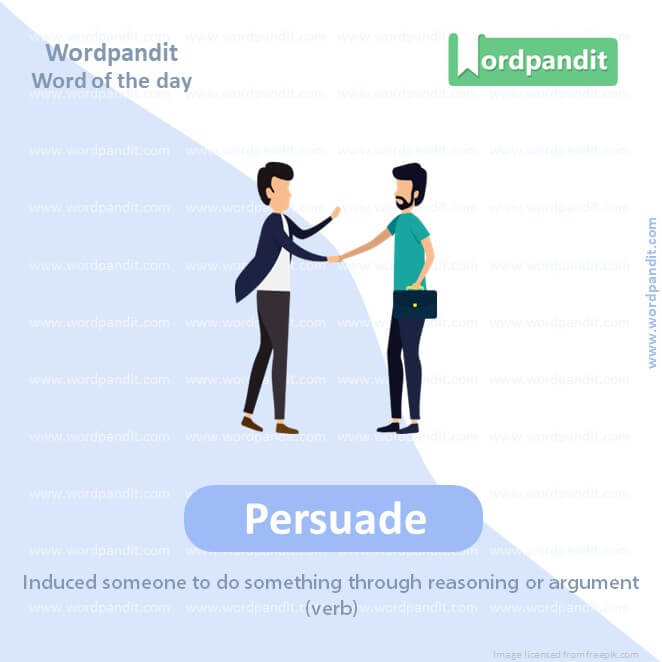Daily Vocabulary Words: List of Daily Used Words in Leading International Newspapers
Hi there. Welcome to this special section @ Wordpandit.
Our endeavour here is very simple: to highlight important daily vocabulary words, which you would come across in leading newspapers in the country. We have included the following newspapers in our selection:
• The New York Times
• The Washington Post
• Scientific American
• BBC
• The Guardian
• Psychology Today
• Wall Street Journal
• The Economist
We are putting in extensive work for developing your vocabulary. All you have got to do is be regular with this section and check out this post on a daily basis. This is your repository of words that are commonly used and essentially, we are posting a list of daily used words. Hence, this has significant practical application as it teaches you words that are used commonly in leading publications mentioned above.
Visit the website daily to learn words from leading international newspapers.

WORD-1: Speculative
CONTEXT: It might be more speculative if this weren’t the fifth major war that Hamas has provoked since it seized power in Gaza in 2007.
SOURCE: New York Times
EXPLANATORY PARAGRAPH: “Speculative” means thinking about things that might happen, even if we’re not sure they will. It’s like when you imagine what might be inside a wrapped present before you open it. People use their imagination and guess about things that might be true in the future.
MEANING: Based on a guess and not on information/ bought or done in order to make a profit in the future
PRONUNCIATION: SPEK-yuh-luh-tiv
SYNONYMS: conjectural, theoretical, hypothetical, suppositional, tentative
USAGE EXAMPLE:
1. The scientists made speculative guesses about the outcome of their experiment.
2. It’s just speculative at this point whether it will rain tomorrow or not.
3. The company made speculative investments in the stock market.
4. We engaged in a speculative discussion about what might happen in the future.
WORD-2: Calibrating
CONTEXT: I’ve noticed that whenever Israel’s critics lecture the country on better calibrating its use of force, they don’t have any concrete suggestions.
SOURCE: New York Times
EXPLANATORY PARAGRAPH: When you’re playing with your toy cars, you might want to make sure they’re all lined up perfectly before starting a race. “Calibrating” is like making sure things are just right or adjusting them so they work correctly. It’s like tuning a guitar string to make sure it plays the right music.
MEANING: Adjusting or checking a device or instrument to ensure it works correctly or to make it accurate (verb).
PRONUNCIATION: KAL-uh-bray-ting
SYNONYMS: adjust, tune, set, align, regulate
USAGE EXAMPLE:
1. The technician spent hours calibrating the scales to ensure accurate measurements.
2. He calibrated the telescope to get a clearer view of the stars.
3. Before the experiment, the scientists spent time calibrating the equipment.
4. The mechanic is calibrating the machine to improve its performance.
WORD-3: Exceptionally
CONTEXT: The reality of urban warfare is that it’s exceptionally costly and difficult.
SOURCE: New York Times
EXPLANATORY PARAGRAPH: “Exceptionally” means something is really, really good or different from the usual. It’s like when you draw a picture and your teacher says it’s not just good, it’s amazing! It’s when something stands out in a very special way, like having a superpower compared to others.
MEANING: To a higher degree than usual; unusually or remarkably (adverb).
PRONUNCIATION: ik-SEP-shuh-nuh-lee
SYNONYMS: extremely, extraordinarily, remarkably, notably, unusually
USAGE EXAMPLE:
1. She is exceptionally talented at playing the piano.
2. The cake was exceptionally delicious, everyone wanted seconds.
3. He performed exceptionally well in the competition.
4. This year’s harvest was exceptionally bountiful due to good weather.

WORD-4: Sheltering
CONTEXT: Hamas has made it even more difficult for Israel because, instead of sheltering civilians in its immense network of tunnels, it shelters itself.
SOURCE: New York Times
EXPLANATORY PARAGRAPH: When it’s raining outside and you run under a big umbrella held by someone to stay dry, that’s like being “sheltered.” It’s when someone or something protects you from bad weather or harm. It’s like having a safe place to go to when things aren’t going well.
MEANING: Providing refuge, protection, or a safe place from danger, bad weather, or harm (verb).
PRONUNCIATION: SHEL-ter-ing
SYNONYMS: protecting, shielding, harboring, safeguarding, housing
USAGE EXAMPLE:
1. The tree was sheltering the birds from the rain.
2. The government set up shelters for people who lost their homes in the disaster.
3. They were sheltering from the storm in a small cave.
4. The barn was sheltering the animals from the cold winter wind.
WORD-5: Victimization
CONTEXT: It came into existence to end their victimization.
SOURCE: New York Times
EXPLANATORY PARAGRAPH: “Victimization” is when someone is treated unfairly or harmed by others. It’s like when someone takes your favorite toy without asking or makes you feel sad on purpose. It’s when someone isn’t being nice to you and it makes you feel bad.
MEANING: The action of singling someone out for cruel or unjust treatment, often resulting in harm or disadvantage to that person (noun).
PRONUNCIATION: vik-tuh-muh-zey-shun
SYNONYMS: exploitation, mistreatment, abuse, persecution, oppression
USAGE EXAMPLE:
1. The organization aims to help victims of victimization by providing support and resources.
2. Bullying often leads to the victimization of the bullied individual.
3. The victimization of innocent civilians during the war was widespread.
4. She suffered years of victimization at the hands of her abusive partner.
WORD-6: Antisemitism
CONTEXT: the war hasn’t generated a torrent of antisemitism so much as it has exposed it.
SOURCE: New York Times
EXPLANATORY PARAGRAPH: “Antisemitism” means not treating people fairly because they’re Jewish. It’s like when someone doesn’t want to play with you just because you like chocolate ice cream, but they like vanilla. It’s when people are mean to others because of who they are or what they believe in.
MEANING: Hostility, prejudice, or discrimination against Jewish people (noun).
PRONUNCIATION: an-tee-SEM-i-tiz-uhm
SYNONYMS: bigotry, prejudice, discrimination, racism, intolerance
USAGE EXAMPLE:
1. There has been a rise in antisemitism in certain parts of the world.
2. The government condemned all forms of antisemitism and vowed to take action against it.
3. Antisemitism has a long history, dating back centuries.
4. Many organizations work tirelessly to combat antisemitism and promote tolerance.

WORD-7: Persuade
CONTEXT: You may not be able to kill an idea but you can defang it, just as you can persuade future generations that some ideas have terrible consequences for those who espouse them.
SOURCE: New York Times
EXPLANATORY PARAGRAPH: “Persuade” is when you try to convince someone to do something or to believe what you believe. It’s like when you ask your friend if they want to play with your toy because it’s really fun. You’re trying to make them think it’s a good idea to play with you.
MEANING: Induced someone to do something through reasoning or argument (verb)
PRONUNCIATION: per-SWAYD
SYNONYMS: convince, sway, influence, urge, coax
USAGE EXAMPLE:
1. She tried to persuade her parents to let her go to the party.
2. The salesman used various techniques to persuade customers to buy the product.
3. The teacher tried to persuade the students to participate in the school play.
4. He managed to persuade his friends to try the new restaurant.
WORD-8: Inmates
CONTEXT: Armed groups have seized control of ports and major roads in the capital and freed inmates from jails.
SOURCE: New York Times
EXPLANATORY PARAGRAPH: “Inmates” are people who are staying in a special place because they did something wrong. It’s like when you pretend to be a superhero and your bedroom becomes your secret headquarters. Inmates stay in places called prisons, and they have rules they need to follow while they’re there.
MEANING: People who are confined to a place like a prison or mental institution, usually because they have broken the law or are considered a danger to themselves or others (noun).
PRONUNCIATION: IN-mayts
SYNONYMS: prisoners, convicts, detainees, captives, residents
USAGE EXAMPLE:
1. The inmates were allowed to spend some time outside in the prison yard.
2. The guards kept a close watch on the inmates to prevent any escape attempts.
3. The prison was overcrowded, making living conditions difficult for the inmates.
4. She worked as a counselor for inmates to help them reintegrate into society after their release.

WORD-9: Avaricious
CONTEXT: whose country has long been a plaything of foreign powers and avaricious local elites.
SOURCE: New York Times
EXPLANATORY PARAGRAPH: “Avaricious” means wanting to have a lot of things, especially money, and not wanting to share with others. It’s like when you have a plate of cookies, and you don’t want to give any to your friends because you want to eat them all yourself. It’s when someone is very greedy and always wants more.
MEANING: Having or showing an extreme greed for wealth or material gain
(adjective)
PRONUNCIATION: AV-uh-RISH-uhs
SYNONYMS: greedy, covetous, grasping, rapacious, selfish
USAGE EXAMPLE:
1. His avaricious behavior led him to pursue wealth at any cost.
2. The king was known for his avaricious nature, constantly seeking to expand his riches.
3. Avaricious individuals often prioritize their own gain over the needs of others.
4. The avaricious businessman exploited his employees for higher profits.

WORD-10: Trafficking
CONTEXT: He had long been accused of links to drug trafficking, and he eventually served time for felony money laundering in the United States.
SOURCE: New York Times
EXPLANATORY PARAGRAPH: “Trafficking” is when people do illegal things like selling or buying things they shouldn’t, like drugs or weapons. It’s like when you’re playing a game, and someone tries to cheat by changing the rules to win unfairly. Trafficking is breaking important rules and causing harm to others.
MEANING: Dealing or trading in something illegal (verb)
PRONUNCIATION: TRAF-ik-ing
SYNONYMS: smuggling, trading, dealing, commerce, black market
USAGE EXAMPLE:
1. The police conducted a raid to stop the trafficking of illegal drugs.
2. Human trafficking is a serious crime that exploits vulnerable individuals.
3. The government implemented strict measures to combat human trafficking.
4. Trafficking of endangered species poses a threat to biodiversity.
Vocabulary Daily Use Words
In the architecturally diverse world of language learning, ‘vocabulary daily use words’ act as a cornerstone. We often take these words for granted, but their significance in day-to-day communications is nothing short of monumental. Mastering these ‘vocabulary daily use words’ should be more than an ancillary task on the sideline; it should take the center stage in your language learning journey.
To begin with, approach ‘vocabulary daily use words’ with the same gusto and reverence as you would an untapped treasure chest. Go beyond the conventional realm of textbooks and explore the world of contemporary literature, newspapers, and digital content. By immersing yourself in these mediums, you’re aligning your learning with real-world language usage, thereby gaining a practical understanding of ‘vocabulary daily use words.’
Memory-enhancing tools add an extra layer of effectiveness to your learning. Flashcards, for example, are a great way to make your study sessions interactive and memory-forging. Coupled with the Leitner system, which is a principle of spacing and repetition, you can ensure better recall and understanding of ‘vocabulary daily use words.’
Furthermore, leveraging mnemonic devices aids in etching the ‘vocabulary daily use words’ into your memory. Associating common words with unique and memorable narratives in your mind enhances their recall. Regular revision and using these words in routine conversations further cement your proficiency.
The potency of immersion as a language learning strategy cannot be emphasized enough. Conversing with native speakers, if possible, provides context to ‘vocabulary daily use words’ and boosts your fluency.
In conclusion, mastering the ‘vocabulary daily use words’ is an enriching journey that requires ongoing effort, continual exposure, and hands-on practice. The strategy of learning through various mediums, using memory-enhancing techniques, leveraging mnemonic devices, and immersion can help demystify these words and enhance your overall language proficiency. So, gear up and embrace the linguistic adventure of mastering the ‘vocabulary daily use words.’











